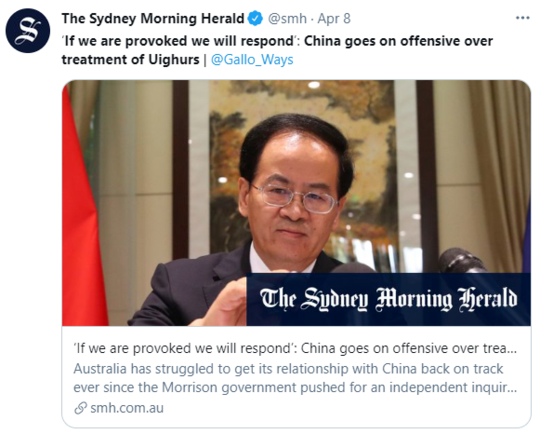During a press conference in Canberra on April 7, the Chinese Ambassador to Australia, Cheng Jinye presented misleading information using propaganda videos and testimony from residents in Xinjiang to defend its treatment of Uyghurs. The ambassador denied multiple reports that any Uyghurs were in detention camps, stating: “The claims that you said 1 million Uighurs are in detention is utterly fake news”.
As China faces mounting pressure over its alleged mass internment and alleged abuse of Uyghurs in Xinjiang, IFJ research shows how the Chinese government and its media apparatus have unveiled an increasingly sophisticated strategy to influence the world's media and its reporting on critical issues related to China.
China's approach towards foreign journalists within China became increasingly hostile in September 2020 as Chinese officials forcedAFR journalist, Mike Smith, and ABC journalist, Bill Birtles, to flee the country. The IFJ continues to report on the concerning numbers of other foreign journalists who have reported on the situation in Xinjiang and have also been forced to leave China and migrate to Taiwan and other countries in the region.
The MEAA said: “Xi Jinping must allow all foreign journalists to operate freely in Xinjiang province and across China and be protected from state-sponsored harassment. It is essential Australian journalists are allowed into China to cover the biggest story of this century.”
The IFJ said: “The IFJ continues to express solidarity with foreign journalists who continue to advocate for the truth despite pressure from China and calls on the Chinese authorities to open access to reporting. The IFJ also reminds China’s diplomatic representatives that it is not their role to advise or dictate the media on its professional duties outside their country. China’s blocking of media to openly report on human rights issues raised in the country continues to raise questions of what China has to hide.”

